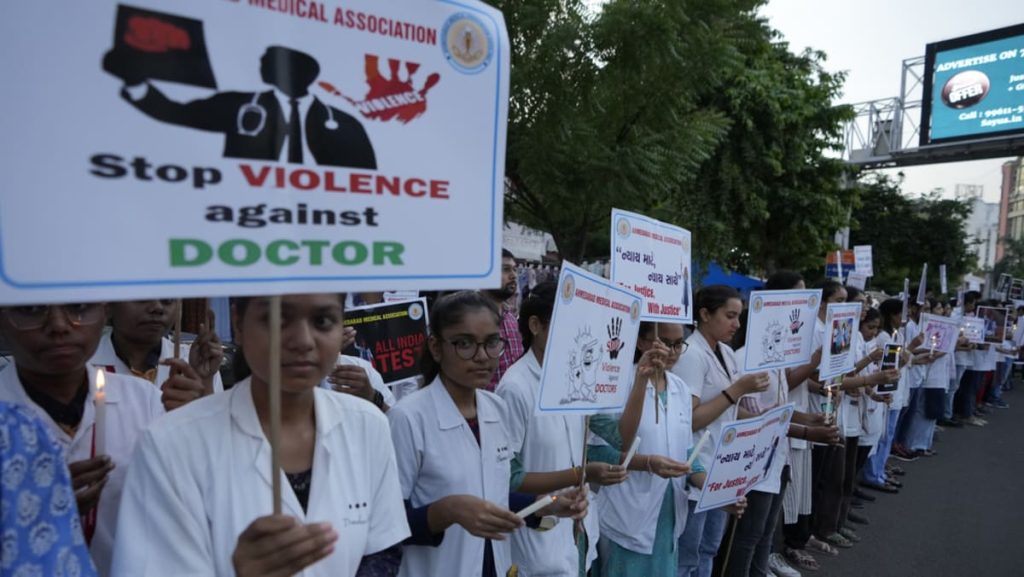Junior doctors in many Indian hospitals have continued protests demanding justice for a colleague who was raped and murdered, despite the end of a 24-hour strike called by the country’s biggest association of doctors. Doctors nationwide have been protesting, holding candlelight marches, and refusing to see non-emergency patients in response to the killing of a 31-year-old postgraduate student of chest medicine in Kolkata on August 9. The incident at the R G Kar Medical College and Hospital has brought attention to ongoing issues faced by women in India despite tougher laws implemented after the 2012 gang-rape and murder of a student in Delhi.
The father of the victim, whose identity cannot be disclosed under Indian law, expressed gratitude for the support of protesting doctors, stating, “This has given me a lot of strength and I feel we will gain something out of it.” Despite legal changes and tougher sentences introduced after the 2012 attack, activists argue that violence against women continues in India, putting women at risk. The Indian Medical Association (IMA) has appealed to Prime Minister Narendra Modi to intervene and ensure the safety and security of healthcare professionals, especially as 60 per cent of India’s doctors are women. The IMA emphasized the need for security protocols similar to those at airports to protect hospital staff.
While the IMA strike ended, the government urged doctors to return to work to address rising cases of dengue and malaria. However, the All India Residents and Junior Doctors’ Joint Action Forum announced a “nationwide cease-work” with a 72-hour deadline for authorities to conduct a thorough inquiry and make arrests in response to the incident. In some hospitals, junior doctors and interns have not resumed duty, putting pressure on others as manpower is reduced. R G Kar Medical College and Hospital has faced ongoing agitation and rallies, leading police to ban gatherings of five or more people around the hospital and deploy riot police to prevent disruptions of peace and tranquillity.
Amidst the ongoing protests and demands for justice, concerns over healthcare services and emergency care are also growing. The IMA has stated that if the government does not take steps to protect doctors, they could potentially stop emergency services as well. The situation remains tense as doctors weigh their options and the government works to address the concerns raised by healthcare professionals. The events at R G Kar hospital have sparked nationwide attention and support for the protesting doctors, highlighting the need for swift action to ensure the safety and security of healthcare workers in India. The protests serve as a reminder of the ongoing challenges faced by women and healthcare professionals in the country and the need for comprehensive measures to address these issues.


